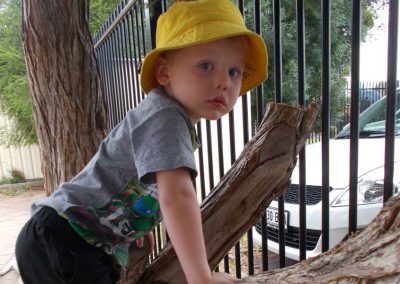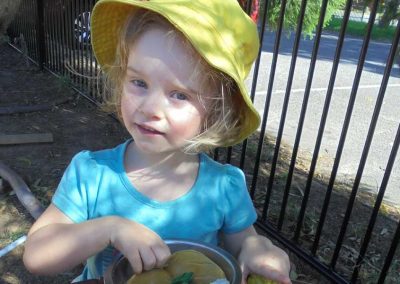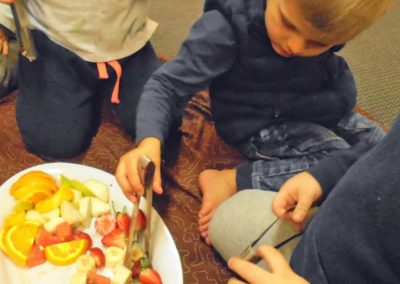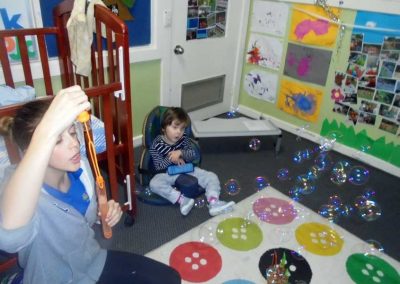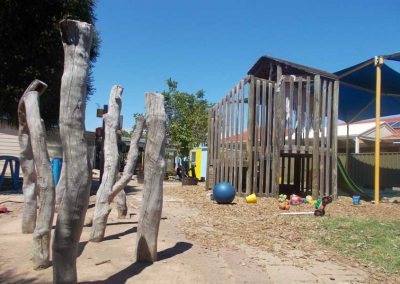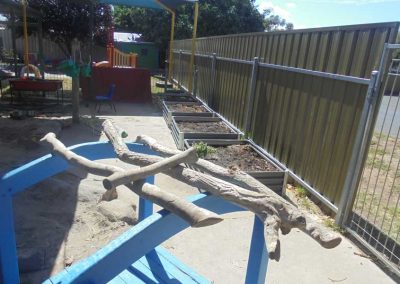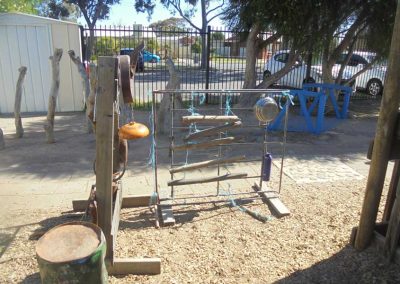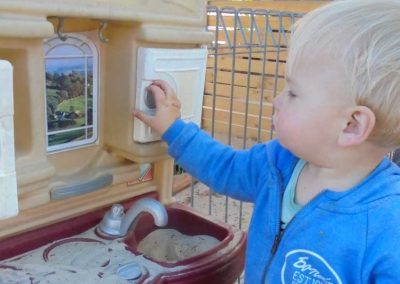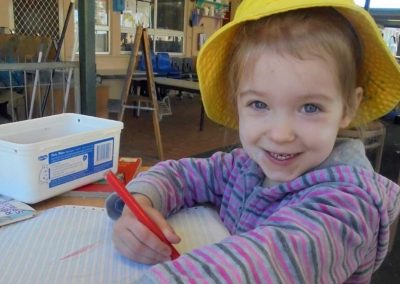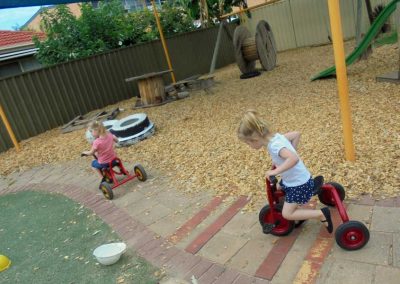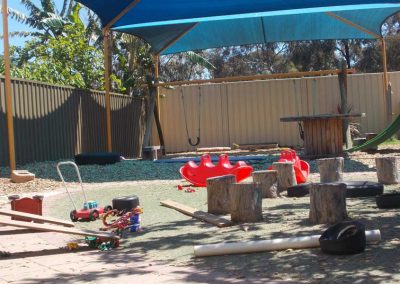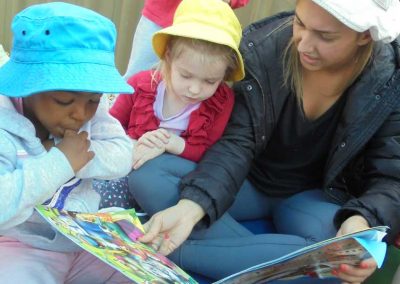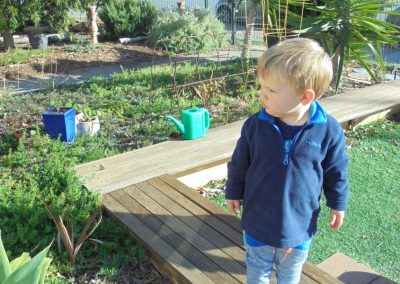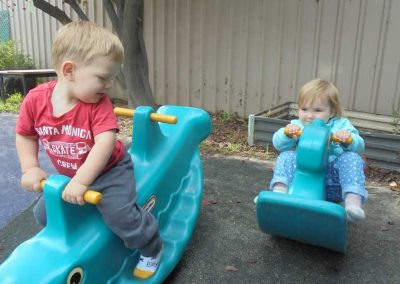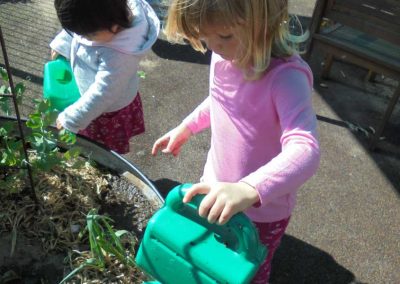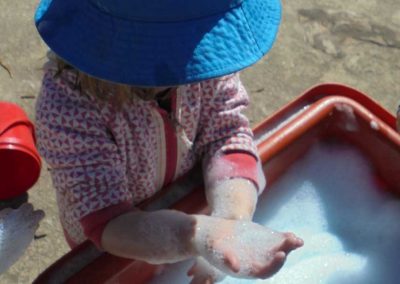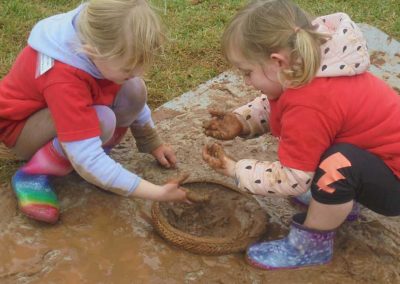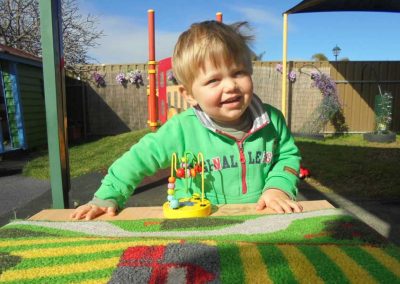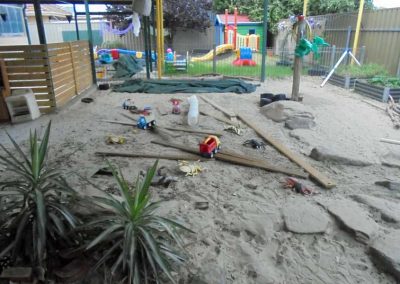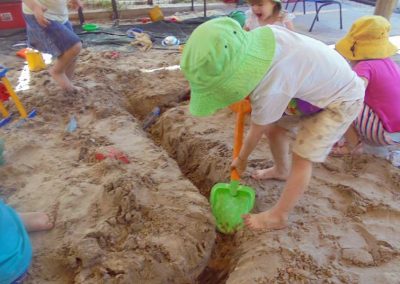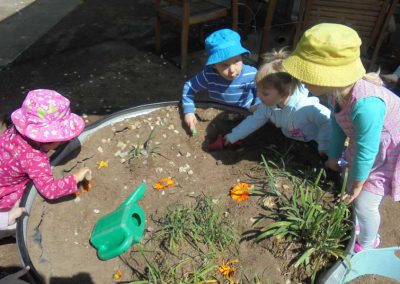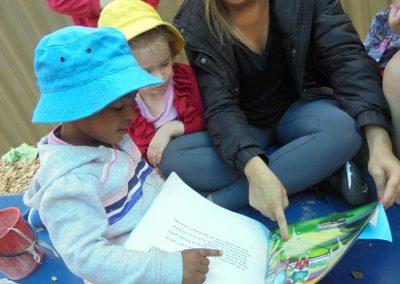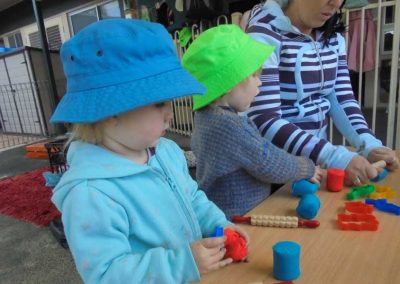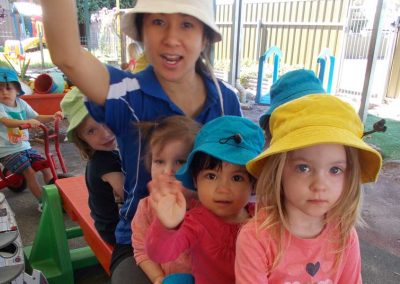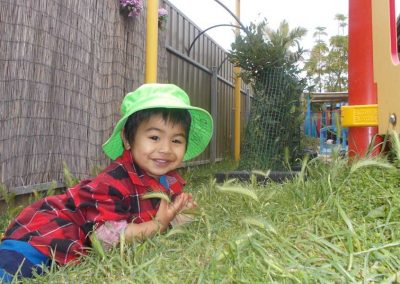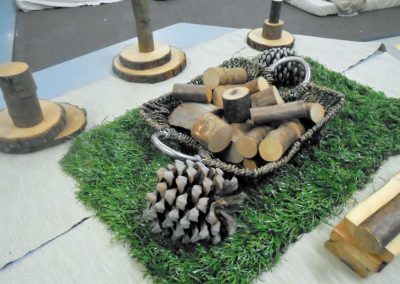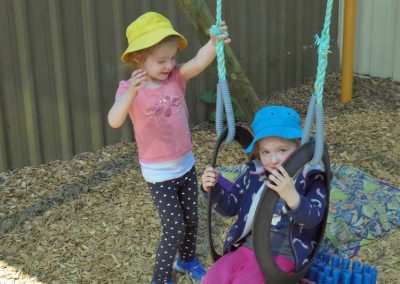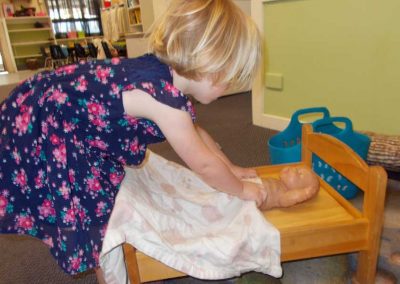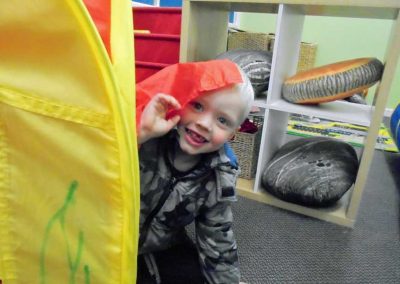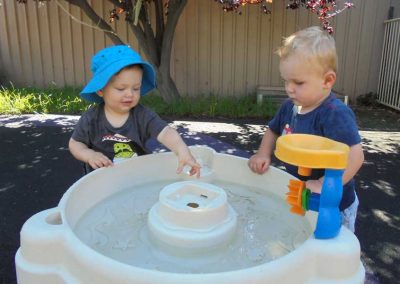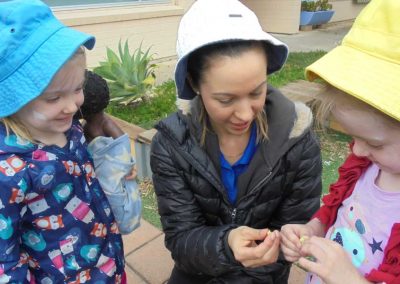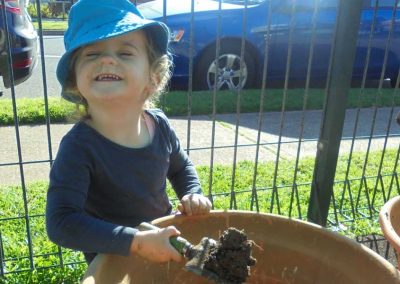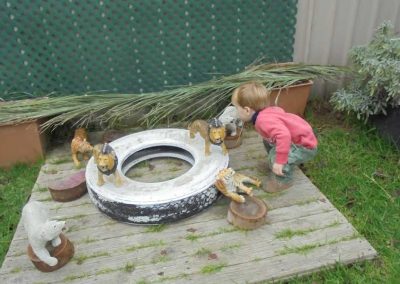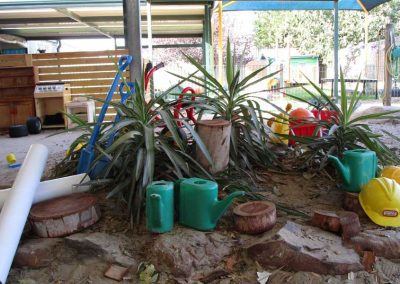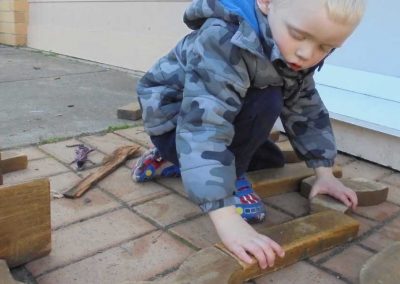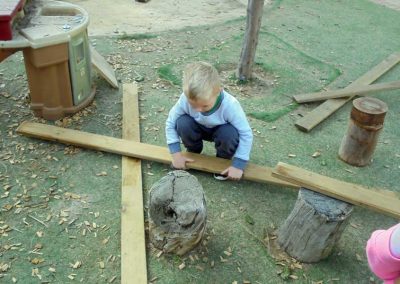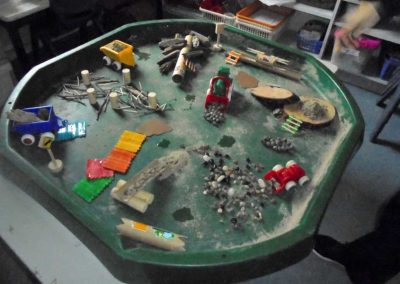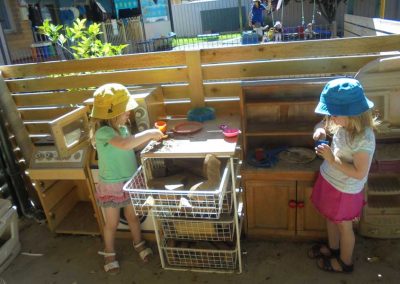Learning Together Every Day
Our Learning Opportunities
Our learning opportunities are provided through nature play. It is our belief that play is not a child’s down time, rather it is their learning time.
Play provides opportunities for children to learn about their world, their culture and how this contributes to our service and to the wider community. Play is a vehicle that allows children to be transported to exciting places both real and imaginary and allows children opportunities to learn new or practice and extend on existing skills.
Children learn how to create and maintain relationships with their peers and adults, it provides opportunities to learn how to manage their feelings and build resilience when situations arise that challenges their feelings.
By providing opportunities to learn in nature we encourage an understanding of the world around us, including sustainability of our planet and the impact that we have on the finite resources available to us.
Each child has documentation that records their learning journey, as they grow and develop in confidence and skills. This is shared with children and families as it provides an important link between home and care.
Key Focus
 Literacy & numeracy
Literacy & numeracy
It is our belief that play provides opportunities for children to develop their early literacy and numeracy skills as a foundation for later learning in education and life.
Literacy encompasses a range of communication methods such as movement, music, storytelling, dance, visual arts, media and drama, along with talking, listening, reading and writing.
Numeracy includes such complex concepts as spatial awareness, problem solving strategies, sorting and classifying – these are all developed through play.
Young children’s understanding of how language is used to communicate and the complex patterns within it are supported by hearing language in its many forms – songs, conversation, directions, poems, books. Infants use sound and gestures to communicate their needs and feelings.
Numeracy is fundamental to many daily tasks that we do – measuring ingredients for cooking, reading timetables for buses or trains or exchanging money. These will be supported by a foundation initiated through play opportunities such as measuring in the sand pit or water play, using language such as “far away”, “it’s a long time until…”
 Creativity
Creativity
The service supports the children by providing lots of open – ended materials, both natural and recycled to encourage creative expression.
This allows children to engage their imagination and to represent their thoughts in a range of ways using various materials such as clay, playdough, pencils, textas, crayons, paint, glue, paper and blocks.
Creativity supports the children to express their thoughts and ideas, engage in reflective thinking and solve problems. For example when there is lots of paint on the paper and the paper cannot be moved to the drying rack.
Creativity provides opportunities for children to take risks and develop new or master existing skills, it supports their identity as a capable learner.
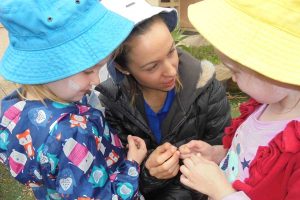 Wellbeing
Wellbeing
Wellbeing includes the physical and psychological aspects of a child’s development and is integral to a child’s sense of belonging within a service.
Children’s wellbeing is supported by educators being responsive to both their educational and care needs, and providing them with an environment in which they feel safe and secure to explore, and be curious about the world around them.
A positive self-esteem whereby a child is viewed as being capable and competent underlies their own identity.
Children are supported through opportunities for them to take charge of self-help skills at an appropriate level such as choosing experiences to engage with, serving themselves at mealtimes, or identify their own needs for sleep or rest. Therefore developing their sense of independence and supporting their sense of agency.
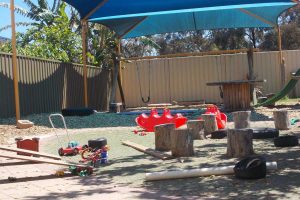 Outdoor opportunities
Outdoor opportunities
The service values and provides opportunities for learning both inside and outside, the outdoor environment provides different spaces for different types of play, responsive to interests and promoting children’s sustained engagement in the outdoor area.
Risk assessments are conducted to ensure that a safe space is provided, and at the same time risk benefit analysis ensures that the children are provided with the opportunity to take risks within that space to develop their ability to assess the risk of activities / behaviours / spaces.
There are smaller spaces to encourage children to play with others and communicate through symbolic or sensory play; open areas to encourage multiple uses including construction, low obstacle courses and ball games; areas with soft-fall support for physical activity such as swinging and climbing.
Providing children with opportunities to develop these skills will be integral to their future decision making skills in life.
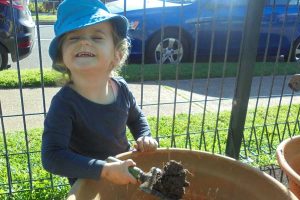 Gardening
Gardening
The children engage in opportunities to care for and harvest the produce from the garden.
They plant seasonal fruit and vegetables that are commonly used in the kitchen in the meals and snacks provide by the service.
Children are exposed to learning opportunities that support their awareness of their world, where their food comes from and about life cycles. It provides opportunities for rich conversations about caring for the environment and how we re-use, re-cycle or re-purpose our “unwanted or broken things”.
Opening Hours
Monday 6:30am - 6:00pm
Tuesday 6:30am - 6:00pm
Wednesday 6:30am - 6:00pm
Thursday6:30am - 6:00pm
Friday 6:30am - 6:00pm
Contact
37 Glenburnie Street, Seaton, SA 5023
08 8347 1839
admin@seatoncommunitychildrenscentre.org.au

